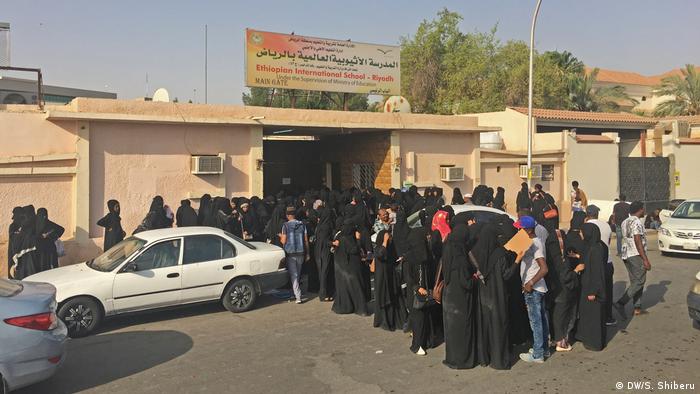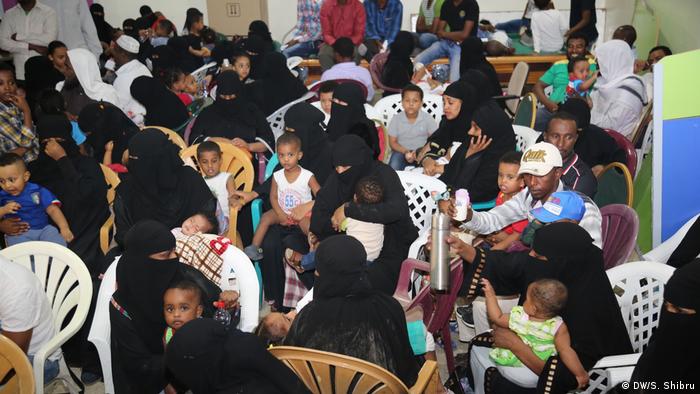July 27, 2017 |
 The government frequently made vivid that Ethiopia not only has been registering a double-digit growth, but also undergoing a democratization process anchored in a federal system that guaranteed the respect for the rights of nations, nationalities and peoples in the country.
The government frequently made vivid that Ethiopia not only has been registering a double-digit growth, but also undergoing a democratization process anchored in a federal system that guaranteed the respect for the rights of nations, nationalities and peoples in the country.In doing so, there are efforts to enhance fair benefits among the people. Although Ethiopia was under dire poverty some two decades ago, the efforts exerted to pull it out of the quagmire of poverty have brought hope through better economic performances from year to year.
That has been happening through the concerted efforts made to first invest in the agricultural sector where the country has ample resources of land farming land and a large number of manpower and then integrated with the industrial sector which is believed to be the ultimate goal of any country for development.
The transition from agriculture to an industry led economy has now on its way to become a reality as it corresponds to the facts on the ground. This is becoming a reality because of the full and adequate public participation either directly or through representatives.
The encouraging results are due to fact that the public has empowered to exercise the decisive say vested in it by the Constitution, its sense of belongingness with the deepening of the government’s credibility.
The other positive side of raising public participation is the free political participation and the far sighted development agendas of the government. Besides, this strong collaboration between the government and the people has become tangible due to the passing of decisions by the government to benefit the people and realize sustainable economic growth, an enduring peace and thriving democracy.
Consequently the public raised faith in the government as the decisions are participatory in any majority government agendas. That is why the country has managed not only to develop its economy, but also to ensure its peace and security in the volatile Horn region. Now that the public is involved at every stage of the decision making processes of the government that enhanced the relationship between the two and that relation is based on the principle that the public is the master and the government is its servant.
Citizens are perennially leading a better life and existence find it easier to accept the assertion that Ethiopia is one of the fastest growing economies in the world. They are liable to view the growth as benefiting all of them at various levels.
The country’s development efforts are focused on both material and human aspects that the government and the people it rules are bound to be at better understanding and cooperation in all aspects. It is possible to take public participation in contributing to the construction of the Grand Ethiopian Renaissance Dam and other development projects.
Although some extremist groups have attempted to create cracks that could bring terrible effects among the people and the government, the empowering public have been fighting against such mess and ascertain their peace. That is what we witness from the past few years. The attempts persistently made by anti-peace elements and extremist groups have foiled with full participation of the Ethiopian people and government.
It is a real witness indicating how the government and the people listen to each other. How they could cooperate to build the new Ethiopia where all nations, nationalities and peoples enjoy equal benefits and rights in the country’s wealth.
It has been ascertained time and again over the past twenty six years that Ethiopia’s federal system is anchored in the will of the people. The regional states of the country have for some time now been able to self-administer, use their own language and develop their culture as they see fit.
The constitution affirms that the Nations, Nationalities and Peoples of Ethiopia are strongly committed, in full and free exercise of their right to self-determination, to building a political community founded on the rule of law and capable of ensuring a lasting peace, guaranteeing a democratic order, and advancing their economic and social development. Despite what some anti-Ethiopian unity have been propagating these ideals have been faithfully implemented since the constitution’s enactment.
The ruling Ethiopian Peoples’ Revolutionary Democratic Front has been viewing inward with the deep renewal exercise in which it is supposed to evaluate critically its performance over the past two decades so as to enhance what is good and avoid what is retarding with hones inward looking of its shortcomings.
Public participation could be manifested through the organizing forums where people of all segments or their elect representatives work in collaboration with the government to ensure public benefit in all aspects.
Capacitating the public to have a stake in the affairs of the nation contributed a lot to the growth of the country particularly in the past ten years where the first and the second Growth and Transformation plans have executed. As the foundation of Ethiopian democratic order and economic development is the public it is certain that what has already planed will be a reality and the country will certainly meet its vision of becoming one of the middle income countries in the coming few years. If there is solidarity and public ownership, there is nothing that could be out of the hands of the people.
Due to the strong public participation it won’t be difficult for Ethiopia to provide safe and secure environment at home, continental and global level.
With the strong participation of the people, the country will certainly execute its second Growth and Transformation Plan effectively that could lead it to a middle income economy. With the strong participation of the people, Ethiopia will remain united and strong.
It would be possible to scale up even to take the development to greater heights if the strong participation of people has been maintained. The strong bond existing between the people and government of Ethiopia rendered their differences irrelevant. Consequently, frequent attempts by parochial groups attempted to aggravate ethnic conflicts have failed.
Even in the future, such attempts will not function as the Ethiopian people have learnt a lot from the past twenty five years’ experience that they could be benefited if they work together to realize the Renaissance of the country.





 ሙሃመድ
ሙሃመድ






















